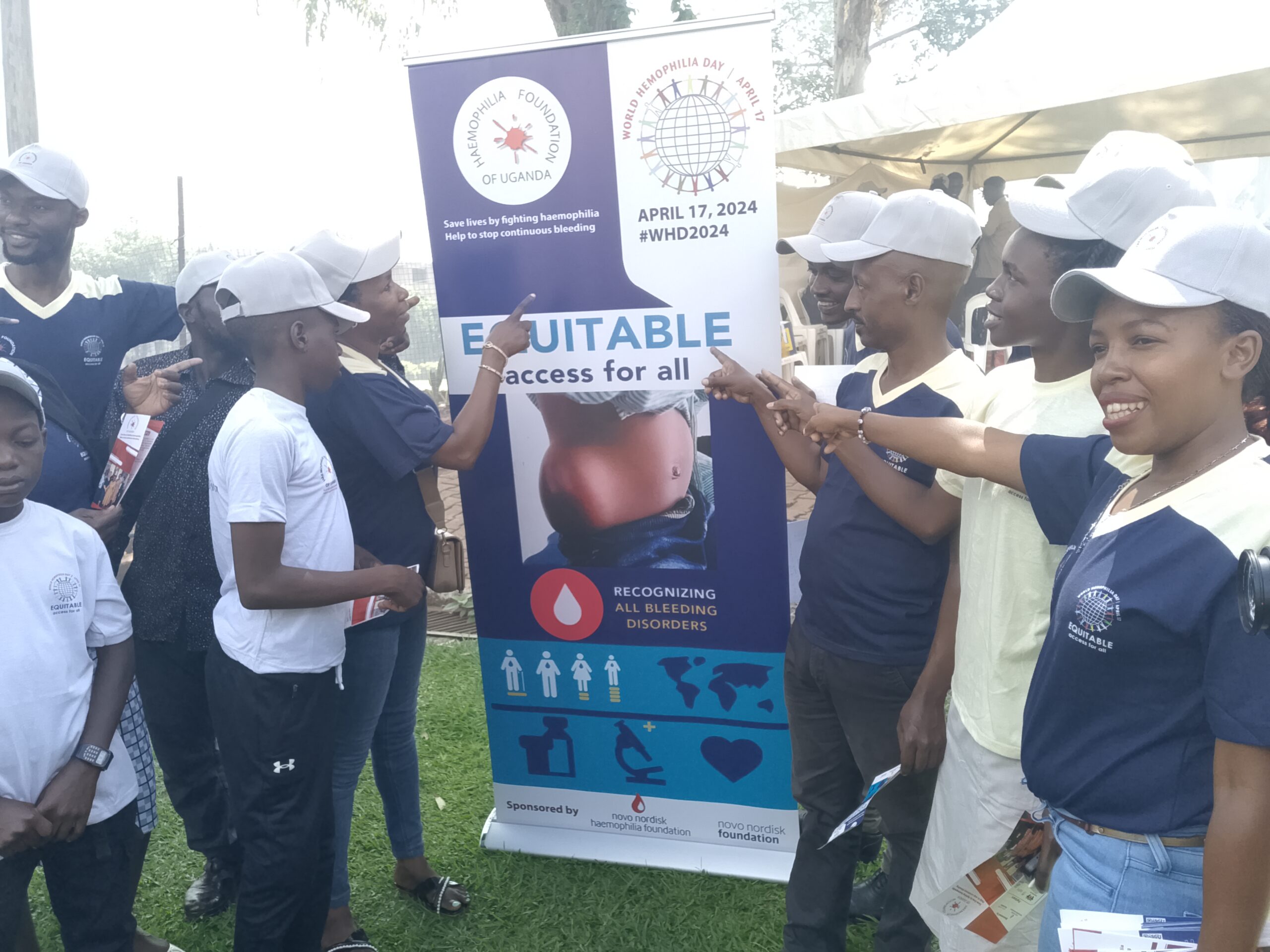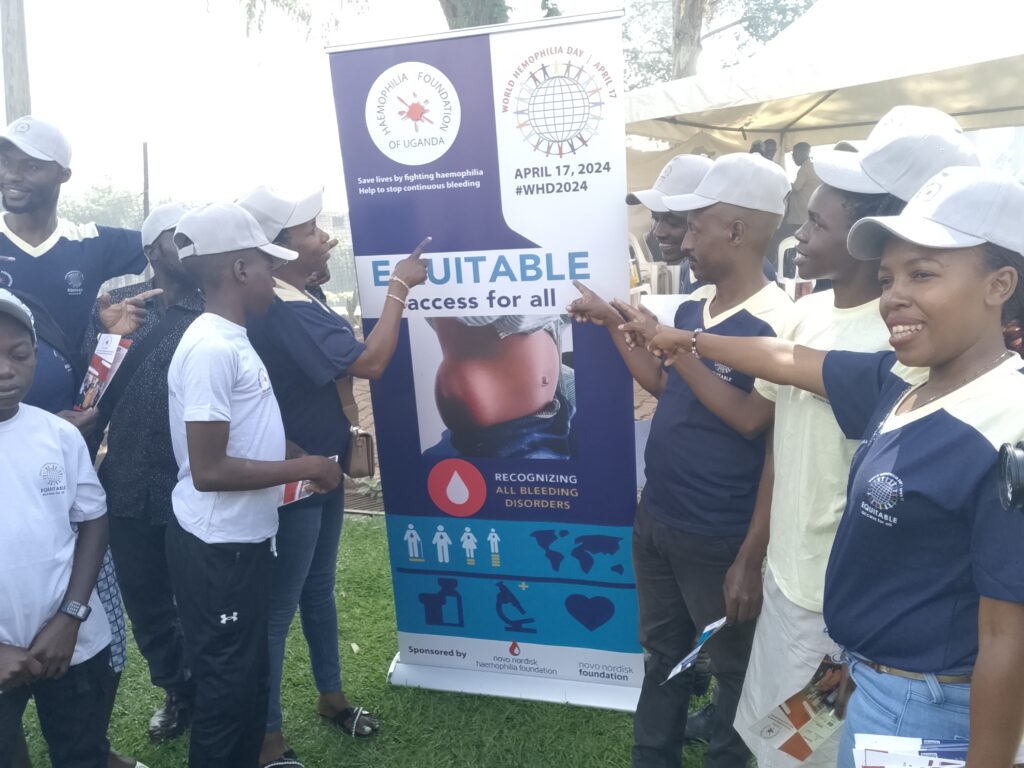
 Mama FM
Mama FM

 Mama FM
Mama FM
18 April 2024, 11:42 am
By Byamukama Alozious
As Uganda joins the rest of the world to commemorate World Haemophilia Day, haemophilia activists have called to government to budget for haemophilia awareness and prevention programs.
Haemophilia is a bleeding disorder which 99% attack boys from the mother (only carriers). Since haemophilia has been largely neglected in Uganda, only 7% of cases are idenfified while 93% of carriers are still unknown.
According to Haemophilia Foundation of Uganda, 400 children countrywide have been diagnosed out of 4,000 plus cases estimated to be in Uganda.
Speaking to Agnes Kisakye, the executive secretary of the foundation said treatment and awareness campaigns for the haemophilia patients is largely a donor commitment urging government to have a political will and budget for the Ugandans who need this service. “It’s a very specialized service and very expensive for a common Ugandan to get and we cannot only depend on donors”, Kisakye said.
She pointed out that stigma and stereotype is common against the patients adding that most children are said to have been bewitched, others that they are born deformed. Some have been taken to people who offer disability support and yet it is a different condition.

She also added that managing a child with haemophilia is not just a walk through but a hard nut to crack. “A child after going through diagnosis is accepted to begin treatment that is Factor 8$9 for a child which is a 500 doze yet very expensive.”
She said if government develops interest, this will help to get the 93% unknown people living with haemophilia and brought to treatment
Dr. Kasirye Phillip, a pediatrician at Mulago national referral hospital said a haemophilia child presents effects like dental breeding, joint swallowing, sickle cell, and heavy bleeding during menstrual period and too much bleeding even to minor injuries and the condition is hereditary. He said the white blood cells are week to fight for the body and can be attached by many diseases.
“Currently, the services are only at Mulago national referral hospital across the country due to is specialized needs but we want to integrate services to regional hospital and health centers,” he said.
A global report by World Federation of Haemophilia found out that 67% of cases occur in low and lower middle income countries.